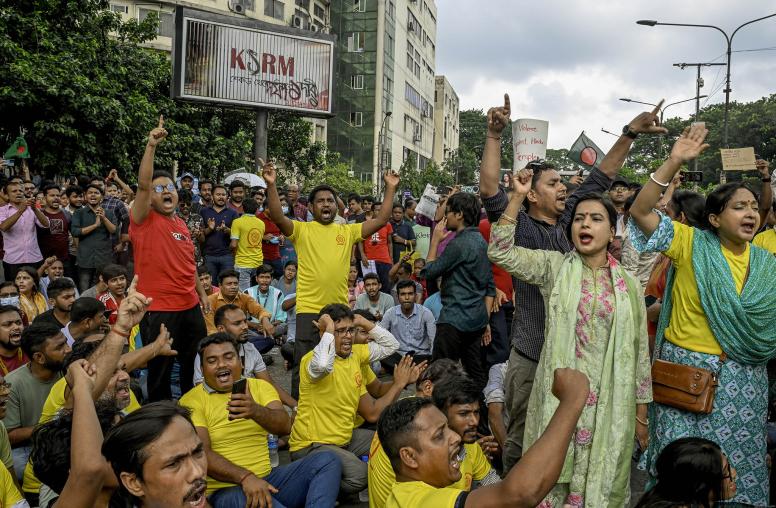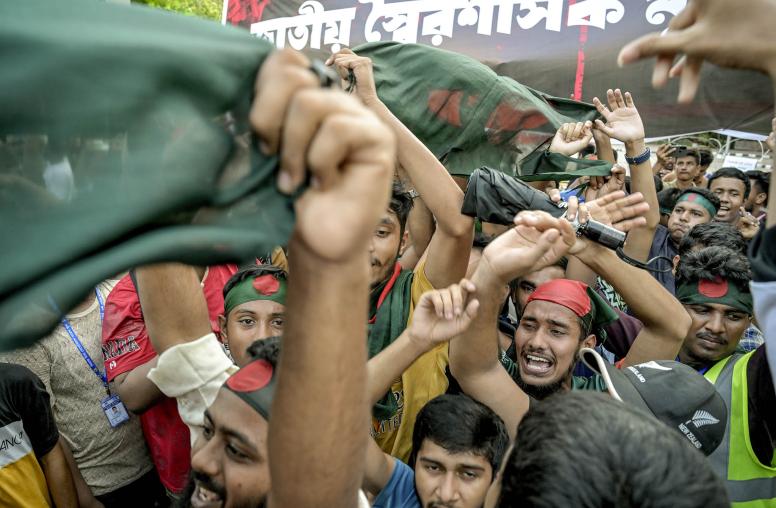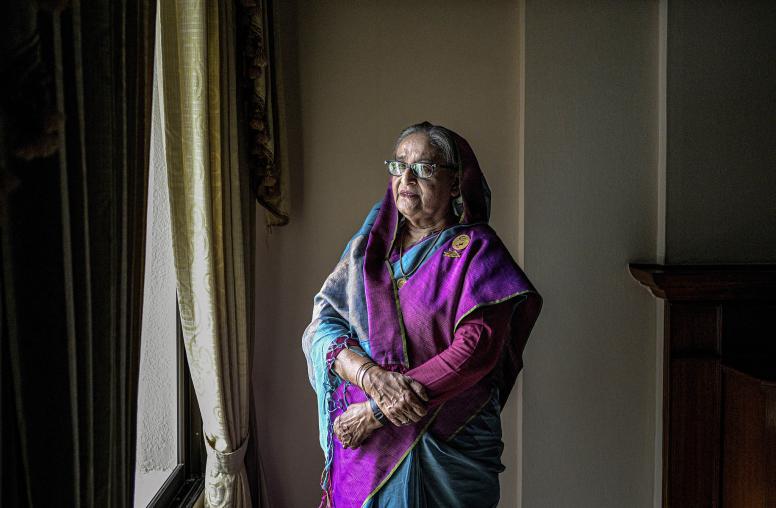Conflict Dynamics between Bangladeshi Host Communities and Rohingya Refugees
In August 2017, several hundred thousand Rohingya fled violence and persecution in Myanmar, seeking refuge in Cox’s Bazar in neighboring Bangladesh. In the years since, the Bangladeshi government has provided a safe haven for the refugees. Yet there are signs of increasing discontent in the Bangladeshi host community over insecurity, economic costs, and other negative effects of the refugee camps. As this report explains, addressing this potentially combustible situation will be vital to ensuring a sustainable humanitarian effort in Cox’s Bazar.

Summary
- More than 950,000 Rohingya refugees currently live in camps in the area of Cox’s Bazar, in southeastern Bangladesh, after fleeing religiously motivated violence in Rakhine State, Myanmar. This study expands on a small but growing body of research that documents increasing hostility among the Bangladeshi host community toward the Rohingya.
- Host community members see the effects of Rohingya refugees on their lives and communities as mostly negative and are frustrated by continuing assistance to the refugees, whom they view as having received sufficient aid.
- Host community members rarely interact with refugees, but interaction is often negative when it occurs. Host community members are also losing confidence in the ability of government to address their concerns, and many see violence as an acceptable response to their grievances.
- Rohingya refugees view intercommunity relations with Bangladeshis as far less tense than do host community members.
- A range of conflict mitigation approaches that involve citizens, the Bangladeshi state, and the international community is urgently needed to alleviate intercommunity tension and forestall potential conflict.
About the Report
This report examines the perceptions and experience of conflict, governance, and politics among Bangladeshis and Rohingya refugees in Cox’s Bazar, Bangladesh. The analysis utilizes survey and focus group research funded and published by the International Republican Institute, a democracy-assistance organization headquartered in Washington, DC. The report was commissioned by the South Asia program at the United States Institute of Peace.
About the Author
Geoffrey Macdonald is a senior adviser in the Asia Division at the International Republican Institute (IRI) and a visiting expert in the South Asia program at the United States Institute of Peace. From 2018 to 2022, he was IRI’s resident country manager in Bangladesh. Isabella Mekker is a senior program associate at IRI. Lauren Mooney is a senior manager for conflict prevention and stabilization at IRI.



